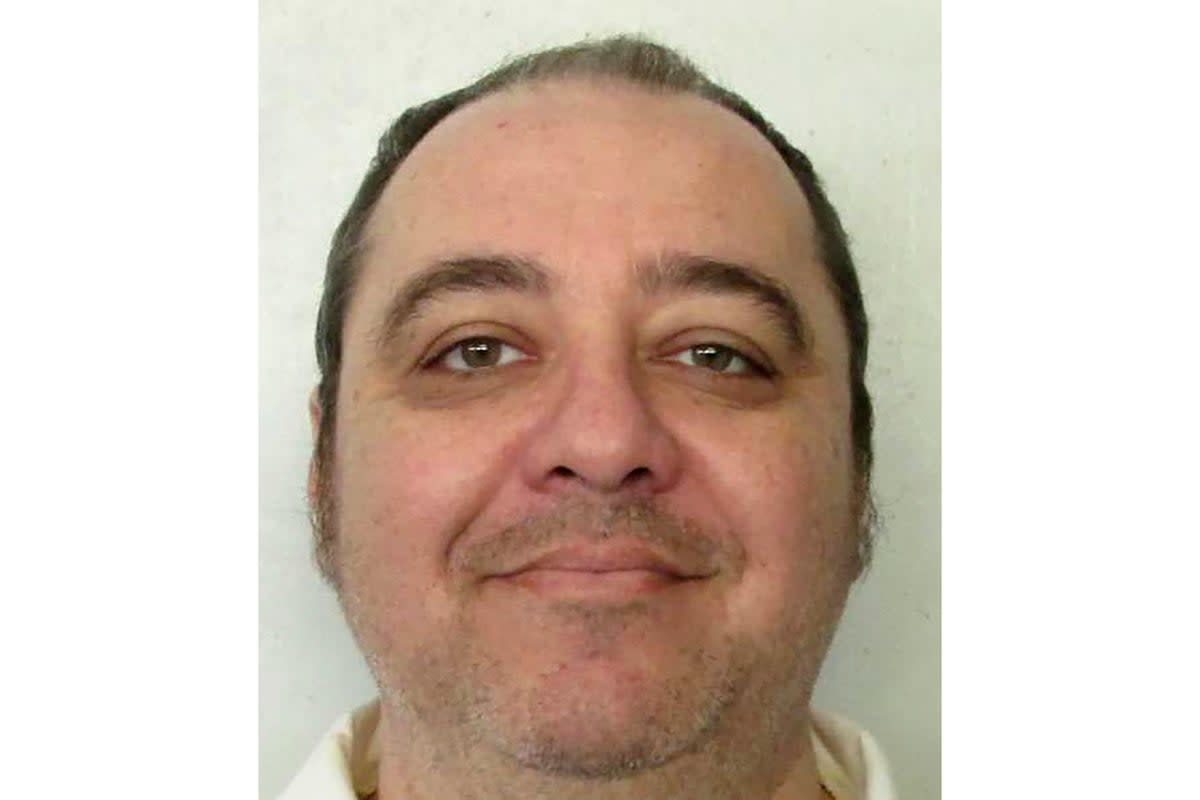Judge rules Kenneth Smith execution by nitrogen gas can move forward

A federal judge has ordered that the execution of Kenneth Eugene Smith, the first ever by nitrogen gas, can go ahead as planned in Alabama later this month.
Smith’s attorneys filed a November appeal against the decision to execute him using the method, which has never been tested, and has been condemned by the United Nations as possible “cruel, inhumane and degrading treatment.”
Smith’s attorneys claimed the decision would infringe on their client’s constitutional rights.
The 58-year-old inmate is set to be put to death in Alabama between 25 January and 26 January. The state previously tried to execute Smith by lethal injection in November of 2022, but the attempt failed because officials could not place intravenous lines into his system to administer the drugs.
His attorneys now say their client is being used as a “test subject for this novel and experimental method.” In a statement to The Associated Press, Robert Grass, Mr Smith’s attorney, said he’d appeal the decision. If that happens, the case could make its way to the US Supreme Court.
In his ruling, US District Judge R Austin Huffaker argued that Smith is not “guaranteed a painless death.” Advocacy organisations have voiced concerns over the new method potentially being painful if there is a dislodging of the mask or vomiting occurs during the procedure.
“On this record, Smith has not shown, and the court cannot conclude, the protocol inflicts both cruel and unusual punishment rendering it constitutionally infirm under the prevailing legal framework,” Judge Huffaker wrote.
He added that there is not enough research to suggest that the untested method is “substantially likely to cause Smith superadded pain short of death or a prolonged death.
“It could, in a highly theoretical sense, but only if a cascade of unlikely events occurs,” he said.
In a statement, Alabama Attorney General Steve Marshall said, “With today’s order, Alabama is an important step closer to holding Kenneth Smith accountable for the heinous murder-for-hire slaying of an innocent woman, Elizabeth Sennett.
“Smith has avoided his lawful death sentence for over 35 years, but the court’s rejection today of Smith’s speculative claims removes an obstacle to finally seeing justice done.”
In 1996, a jury convicted Smith of capital murder over 45-year-old Ms Sennett’s death in 1988. He was part of a two-person team hired to kill the pastor’s wife in northwestern Alabama.
Smith was reportedly paid $1,000 to commit the crime for her husband, who had sunk deep into debt and was seeking an insurance payout. Officials discovered Ms Sennett’s body with multiple stab wounds. Her husband reportedly died by suicide after officials narrowed in on him during the murder investigation.
The jury voted 11 to 1 in favor of Smith serving life in prison but the decision was overruled by the judge at the time who handed him the death penalty.


